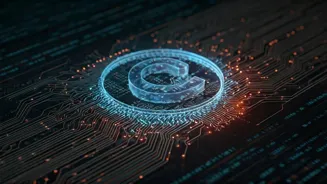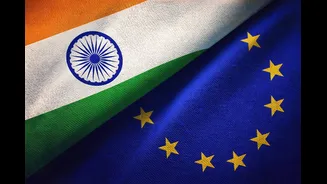AI Training & Copyright
At the heart of the copyright battle lies the question of how AI models are trained using existing works. Authors argue that companies are using their
books and other creative content without proper authorization, essentially exploiting their intellectual property to enhance AI capabilities. The central issue involves whether the process of feeding copyrighted material into AI systems constitutes copyright infringement. Furthermore, the legal challenge stems from determining if these AI systems are using copyrighted material in a manner that violates the original rights. This controversy has led to several lawsuits, with authors uniting to protect their rights within the rapidly evolving field of artificial intelligence.
Suits Against Tech Giants
Several major tech companies, including Microsoft, Anthropic, and Apple, are facing lawsuits from authors. These lawsuits, originating from authors, involve allegations of copyright infringement due to the use of literary works for training AI models. The authors argue that these companies used copyrighted materials without permission. The legal disputes are still ongoing and are setting a precedent for how AI will use protected content. The outcomes of these cases will likely determine the future of AI technology as it grows and the need to find solutions to satisfy both technological progress and the protection of authors' rights.
Key Legal Developments
There have been significant developments in the legal battles. A judge has ruled that authors suing Anthropic can proceed as a class action, meaning multiple authors with similar claims can join together in one case. This decision could affect the scope of these lawsuits and increase pressure on companies. A recent settlement between Anthropic and the authors added another dimension to the copyright war. These events are closely followed by the technology and legal communities, as they help to clarify copyright law's applicability to AI. Each legal outcome affects the use of copyrighted content in AI, and further court decisions are anticipated to provide clarity on the subject.
Copyright Infringement Allegations
Companies like OpenAI are also fighting against copyright infringement allegations. In these cases, authors claim that their works were utilized in the training of AI models, such as those powering chatbots. OpenAI has denied any infringement but still face claims from authors. These lawsuits put into focus the legal ramifications of using creative content in AI training and testing. The ongoing disputes are a reminder of the difficulty in balancing the interests of creators with the development of AI technology. Decisions and resolutions in these suits are expected to shape the future of AI training practices and intellectual property protection.
Future of Copyright
The legal battles underway highlight a bigger issue about the future of copyright in the age of AI. As AI models become more sophisticated, the use of copyrighted material for their training will likely continue to be a critical point of contention. Key legal discussions will revolve around creating a balance between AI innovation and protecting authors' rights. Possible solutions could involve updated licensing agreements, new laws, or changes to copyright enforcement. The evolving laws will need to address the new challenges posed by AI, and the courts and legislative bodies must find ways to foster innovation while protecting intellectual property. This is a crucial need for those creating AI solutions.













